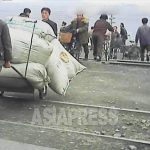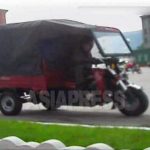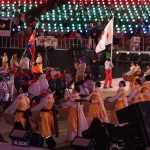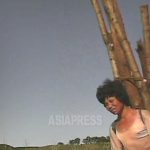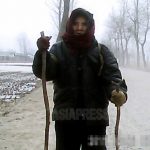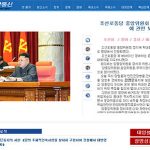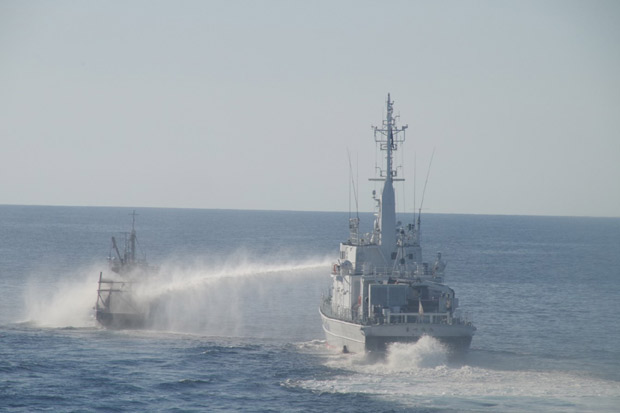
2017/Dec/28
Wooden fishing vessels, most likely from North Korea, are washing up on Japanese beaches with some regularity. Many of these ‘ghost ships’ wash ashore as partial wrecks, but several have been found without any damage, to the extent that squid drying racks are still propped up on deck.
The fishing season for squid runs from June to July. North Korean fishing boats tend to hone in on Yamatodai, in Japan’s Exclusive Economic Zone(EEZ) to illegally catch squid. A photo taken by the Japan Coast Guard in July shows a typical example of a washed up vessel from North Korea, complete with squid slung over dry in gracks.
Hooks for catching squid were found in the boats washed up on the Japanese coast. It is reasonable to assume that the sharp increase of fishing boats washing ashore in November is the result of increasing difficulties for catching squid forcing North Korean vessels to venture further into Japanese waters. Boats with poor equipment are required to approach nearer to the coastal waters of Japan during the fall season of September-October.
Squid is a valuable source for foreign earnings of the state. Once off-loaded on North Korean docks, high quality squid are normally exported to China. It is estimated that the export ofseafood amounts to KRW193.1 billion, making it the 3rdmost important product to the North Korean economy, according to2016 statistics.
However, it recently became impossible for North Korea to earn foreign capital through squid as the UN Security Council sanctioned the export of these products in August. Is the North Korean state able to cover the cost of squid fishing?
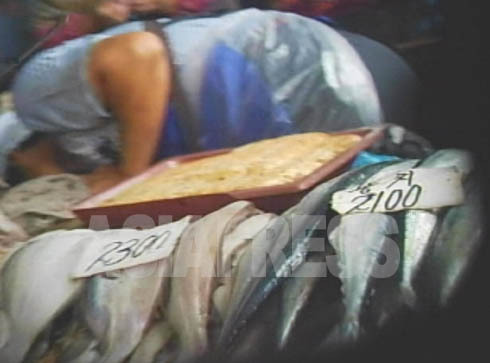
◆Squid for domestic consumption and smuggling?
Our ASIAPRESS reporting partner spoke with a North Korean wholesaler who buys squid from fishermen and sells them to fishery companies. The wholesaler explained, “There’s good money in squid. Many a people go to sea, during the season, to land a big catch. But, the catch wasn’t good this year. Fishery companies select squid according to the quality of the catch, and ship them in containers. The best are sold at RMB 75 (KRW 12,316) per kilo. The next grade down are sold for RMB 35-40 (KRW 5,700-6,580) per kilo and the rest go for RMB 25-30 (KRW 4,100-4,937) per a kg. The good ones are for the Chinese market, while the smaller ones, the size of your palm, are sold in the domestic markets. Now, though, good ones are also found in the domestic markets.”
It may mean that the damage being wrought be the international sanctions on the North Korean economy is compensated for by the domestic market. A businessperson who came to China from Pyongyang said, “Shrimp, crab and octopus were not sold in the domestic market before, but we can buy them now in Pyongyang.” DPRK Seafood, once sold almost exclusively in China, is now available throughout the North Korea.
A reporting partner in Hyesan City of Yanggang Province surveyed the costs of seafood in December 2017and reported, “Seafood is abundant in the markets. Small and large flounders are RMB 11 (KRW 1,800) and RMB 16 (KRW 2,633) respectively. Trout is RMB 7 (KRW 1,150). Medium sized squid is RMB 38 (KRW 6,254). Sandfish is cheap, priced at RMB 1.8 (KRW296), meaning that ordinary people can afford it.” (Price is RMB per kg)
A reporting partner in North Hamkyung Province reported a similar story: Seafood has noticeably increased in price in the markets. Meanwhile, some say that smuggling squid to China is likely toincrease in frequency. The reporting partner in Yanggang Province explained, “Squid are light, easily preserved and fetch a good price. They are perfect for smuggling. Smugglers may be targeting the lunar new year in China for optimal prices.” (ISHIMARU Jiro / Kang Ji-won)
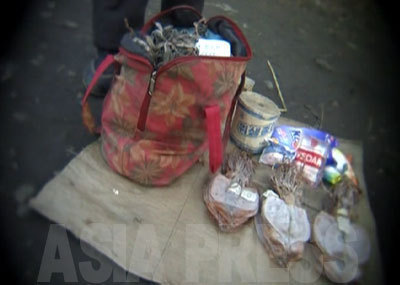
 * Editor’s notes on North Korean reporters
* Editor’s notes on North Korean reporters
ARCHIVE(pdf) >>
DPRK MAP >>
